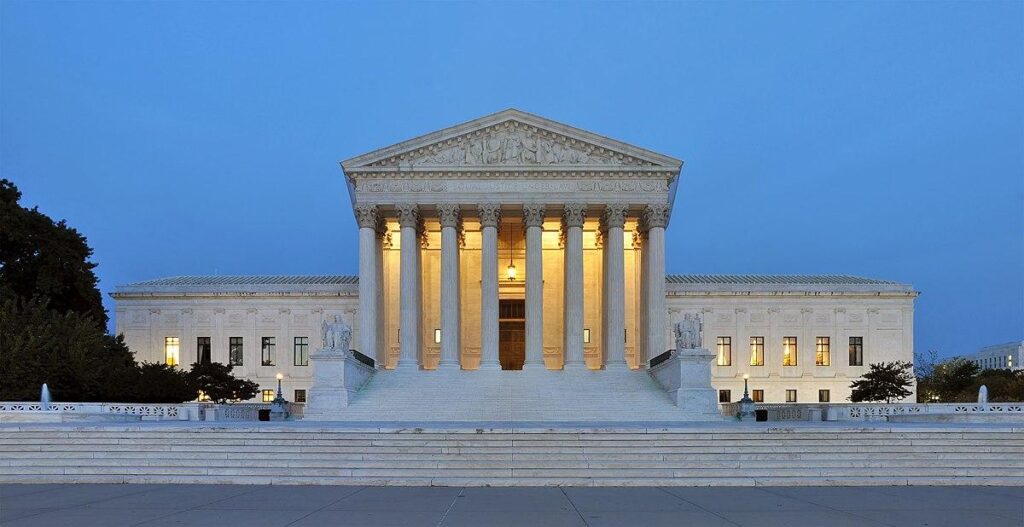The Supreme Court has agreed to hear a pivotal case challenging state bans on transgender athletes participating in girls’ sports, marking a significant moment in the ongoing national debate over transgender rights and athletic competition. The decision to review these bans underscores the heightened legal and cultural tensions surrounding gender identity policies in school sports, with implications that could reshape how states address fairness and inclusion in athletics. This development follows a series of controversial state-level rulings and legislative measures, thrusting the issue into the nation’s highest court for a definitive ruling.
Supreme Court Set to Hear Challenges to State Transgender Athlete Bans
The highest court in the United States is poised to address the contentious issue of transgender participation in female sports, focusing on state laws that prohibit transgender girls from competing in school athletic events. These challenges stem from a patchwork of legislation passed in various states, sparking fierce debate over fairness, inclusivity, and the rights of transgender students. Advocates for the bans argue they protect competitive integrity in women’s sports, while opponents claim the restrictions are discriminatory and harm transgender youth by excluding them from important social and physical activities.
Key points under consideration include:
- Legal interpretations of Title IX and its protections against sex discrimination.
- Scientific evidence concerning physical differences and fairness in competition.
- The balance between inclusion policies and maintaining level playing fields.
| State | Ban Status | Primary Argument |
|---|---|---|
| Florida | Enacted | Protect girls’ sports fairness |
| California | Prohibited | Inclusive policies upheld |
| Texas | Enacted | Maintain competitive balance |
Legal Experts Weigh Impact on Civil Rights and Sports Regulations
Legal analysts highlight that the Supreme Court’s decision to review state bans on transgender athletes marks a pivotal moment for civil rights jurisprudence. The case underscores competing constitutional principles, particularly equal protection under the law versus states’ rights to regulate participation in sports. Experts anticipate the Court will grapple with complex questions about how gender identity intersects with anti-discrimination statutes and whether existing regulations can be deemed inherently exclusionary.
- Potential Civil Rights Ripple Effect: A ruling favoring inclusion may extend protections for transgender individuals beyond athletics.
- Precedent-Setting Nature: Could redefine how courts interpret gender discrimination in other public spheres.
- Impact on Sports Governance: May compel sports organizations to revise policies to ensure compliance with federal constitutional standards.
| Aspect | Challenges | Legal Focus |
|---|---|---|
| State Legislation | Balancing fairness vs. inclusion | Constitutionality of bans |
| Educational Institutions | Policy development for student-athletes | Title IX implications |
| Sports Associations | Enforcement and compliance | Competitive equity rules |
Sports law experts warn that the Court’s ruling could also reshape regulatory oversight within athletic organizations, weighing heavily on standards that define fair competition. Legal debates focus on whether biological distinctions justified in traditional sports settings can coexist with anti-discrimination mandates without infringing on transgender rights. The decision may prompt a reassessment of policies nationwide, influencing how eligibility criteria are constructed and challenged.
- Governance Shift: Athletic bodies may face increased litigation risk if policies are deemed exclusionary.
- Broader Social Dialogue: The case acts as a catalyst for public discussions about gender identity and fairness in youth and professional sports.
Voices from Advocates and Critics on Fairness in Girls Sports
Advocates argue that inclusion in girls’ sports is essential for the dignity and mental health of transgender athletes. They emphasize that participation fosters teamwork, self-esteem, and equal opportunity, highlighting that sports should be a space where all young people can thrive regardless of gender identity. Organizations supporting transgender rights have voiced concerns that bans reinforce discrimination and harm vulnerable youth. “Fairness in sports isn’t about exclusion, but about creating equal access while respecting individual identity,” one advocate noted.
Meanwhile, critics insist that competitive fairness and safety must remain paramount. They warn that physiological advantages may exist for transgender women athletes, which could affect outcomes and opportunities for cisgender girls. Parents and coaches from affected communities call for clear guidelines and data-driven policies, underscoring the need for a balanced approach. The debate has also sparked calls for better scientific research illustrating how hormone therapies impact athletic performance over time.
- Advocates: Inclusion, Mental Health, Equal Opportunity
- Critics: Fair Competition, Safety, Scientific Evidence
- Common Ground: Need for Clear Policies, Respectful Dialogue
| Aspect | Advocates’ View | Critics’ View |
|---|---|---|
| Participation | Rights and inclusion | Potential unfair advantage |
| Health | Positive social impact | Physical safety concerns |
| Policy | Anti-discrimination focused | Evidence-based regulations |
Recommendations for Policymakers Amid Heightened National Debate
Policymakers should prioritize evidence-based approaches that balance fairness and inclusivity in sports. Crafting legislation requires careful consideration of scientific research on physiological differences and their impact on competitive equity. Moreover, engaging directly with affected communities-including transgender athletes, coaches, and advocacy groups-can ensure policies respect human rights while addressing concerns around safety and fairness. Collaborative dialogue remains essential to bridging divides and promoting understanding within schools and sports organizations.
To assist in creating balanced policies, legislators might focus on key areas:
- Clear eligibility criteria: Define guidelines based on verifiable standards such as hormone levels rather than broad categorical bans.
- Flexible enforcement mechanisms: Allow schools and sports bodies discretion in applying rules based on context and individual assessments.
- Regular policy review: Mandate periodic reassessment of laws to incorporate emerging scientific insights and social perspectives.
- Education and training: Promote awareness programs for coaches, athletes, and administrators to foster inclusivity.
| Policy Focus | Key Consideration | Potential Impact |
|---|---|---|
| Eligibility Standards | Hormone levels and transition timelines | Ensure competitive fairness |
| Community Engagement | Inclusive stakeholder consultations | Build trust and reduce conflict |
| Training Programs | Awareness workshops for sports staff | Promote understanding and empathy |
Future Outlook
As the Supreme Court prepares to weigh in on the contested issue of transgender athletes’ participation in girls’ sports, the nation awaits a landmark decision that could reshape policies across numerous states. With significant legal and social implications at stake, this case underscores the ongoing national debate over gender identity, fairness in athletics, and the rights of transgender individuals. The Court’s ruling is expected to set a critical precedent, influencing not only sports regulations but broader discussions on civil rights and inclusion moving forward.





